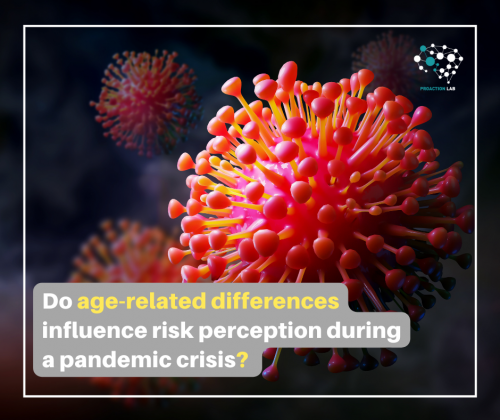
Do age related differences influence risk perception during a pandemic crisis?
An interdisciplinary group investigated how age influenced predicted risk during the COVID-19 emergency state in Portugal. They showed that projected risk decreased more steeply for younger than older adults. Their findings suggest that younger adults might had a different prediction of how the epidemic-related risk will evolve.
"Very few studies have investigated age-related differences in risk perception in real-life situations. But recently the COVID-19 pandemic gave researchers the possibility to focus on the perception of risk across different age groups. Such studies found that older adults (over 70 years) perceived a higher risk severity of COVID-19 compared to the other age groups, and, conversely, younger adults (18-29) perceived lower risk severity”, says Sara Scaletti, one of the authors.
“For what concerns risk attitude (a broader concept than mere risk taking and a proper psychological trait), there is evidence that it changes with age: people become more risk-averse as they age, especially in the domain of health and safety. These health-related differences in risk attitude may be important when it comes to health guidelines and recommendations, in situations such as the recent COVID-19 pandemic”, concludes.
Scaletti S, Duarte I, Senra C, Almeida J, Ferreira A, J, Walbrin J, Pilacinski A: Optimistic Youth: Young Adults Predicted a Faster Decrease in Risk during COVID-19 Emergency State in Portugal. Port J Public Health 2022. doi: 10.1159/000524076












